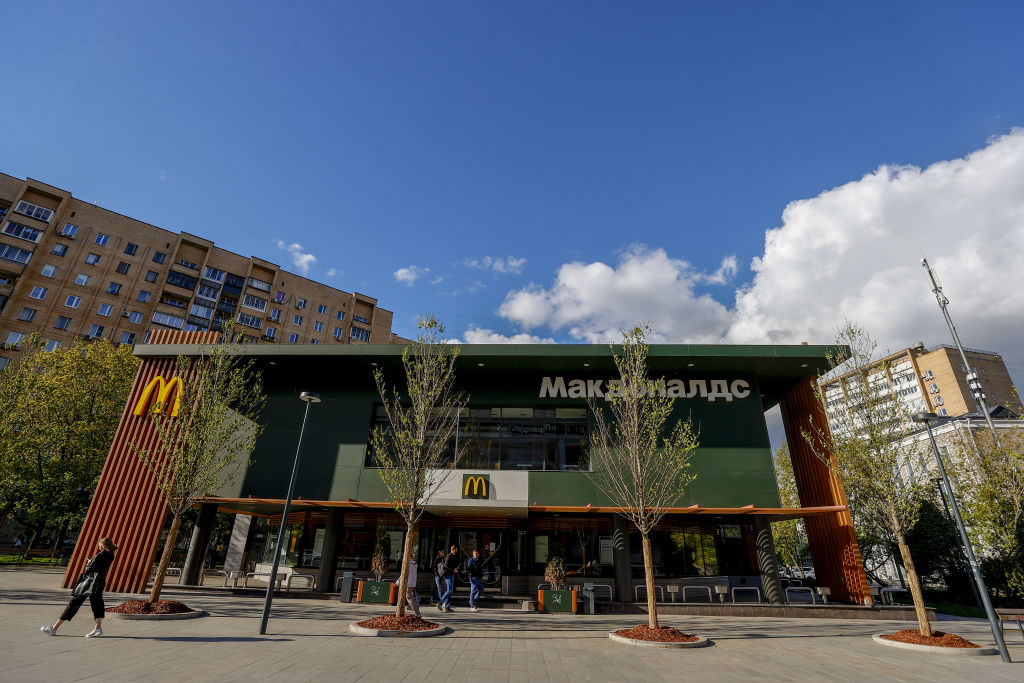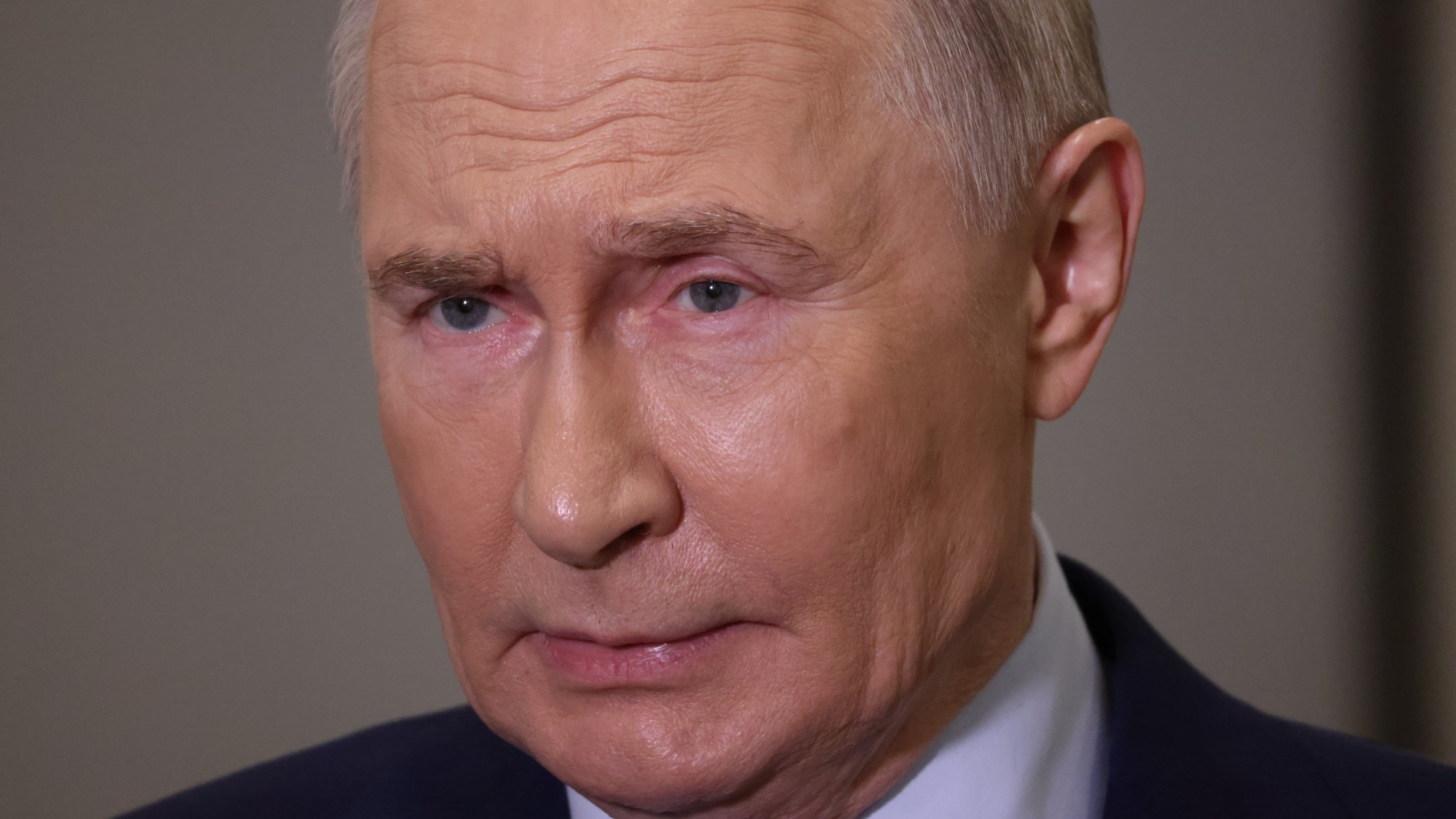McDonald's announces total withdrawal from Russia after 32 years


A free daily email with the biggest news stories of the day – and the best features from TheWeek.com
You are now subscribed
Your newsletter sign-up was successful
McDonald's announced Monday that it plans to fully exit the Russian market in response to Russia's invasion of Ukraine, USA Today reports.
In March, the fast food giant said it would "temporarily close" all of its restaurants in Russia and "pause all operations in the market" while continuing to pay its 62,000 employees.
According to The New York Times, McDonald's "now plans to sell its business, which includes 850 restaurants, some run by franchisees, to a local buyer" who will remove McDonald's branding from the restaurants.
The Week
Escape your echo chamber. Get the facts behind the news, plus analysis from multiple perspectives.

Sign up for The Week's Free Newsletters
From our morning news briefing to a weekly Good News Newsletter, get the best of The Week delivered directly to your inbox.
From our morning news briefing to a weekly Good News Newsletter, get the best of The Week delivered directly to your inbox.
McDonald's said in a statement that continuing to operate in Russia amid the humanitarian crisis caused by the war in Ukraine "is no longer tenable, nor is it consistent with McDonald's values."
The first Russian McDonald's opened in 1990, before the fall of the Soviet Union. In 1996, author Thomas L. Friedman proposed what he called the "Golden Arches Theory of Conflict Prevention" based on the claim that "[n]o two countries that both have a McDonald's have ever fought a war against each other."
"[W]hen a country reaches a certain level of economic development, when it has a middle class big enough to support a McDonald's, it becomes a McDonald's country, and people in McDonald's countries don't like to fight wars," Friedman wrote.
A study conducted last month by an independent pollster suggested that around 80 percent of Russians support the invasion of Ukraine. Very soon, Russia won't be a McDonald's country anymore.
A free daily email with the biggest news stories of the day – and the best features from TheWeek.com
Grayson Quay was the weekend editor at TheWeek.com. His writing has also been published in National Review, the Pittsburgh Post-Gazette, Modern Age, The American Conservative, The Spectator World, and other outlets. Grayson earned his M.A. from Georgetown University in 2019.
-
 How the FCC’s ‘equal time’ rule works
How the FCC’s ‘equal time’ rule worksIn the Spotlight The law is at the heart of the Colbert-CBS conflict
-
 What is the endgame in the DHS shutdown?
What is the endgame in the DHS shutdown?Today’s Big Question Democrats want to rein in ICE’s immigration crackdown
-
 ‘Poor time management isn’t just an inconvenience’
‘Poor time management isn’t just an inconvenience’Instant Opinion Opinion, comment and editorials of the day
-
 TikTok secures deal to remain in US
TikTok secures deal to remain in USSpeed Read ByteDance will form a US version of the popular video-sharing platform
-
 Unemployment rate ticks up amid fall job losses
Unemployment rate ticks up amid fall job lossesSpeed Read Data released by the Commerce Department indicates ‘one of the weakest American labor markets in years’
-
 US mints final penny after 232-year run
US mints final penny after 232-year runSpeed Read Production of the one-cent coin has ended
-
 Will latest Russian sanctions finally break Putin’s resolve?
Will latest Russian sanctions finally break Putin’s resolve?Today's Big Question New restrictions have been described as a ‘punch to the gut of Moscow’s war economy’
-
 Warner Bros. explores sale amid Paramount bids
Warner Bros. explores sale amid Paramount bidsSpeed Read The media giant, home to HBO and DC Studios, has received interest from multiple buying parties
-
 Gold tops $4K per ounce, signaling financial unease
Gold tops $4K per ounce, signaling financial uneaseSpeed Read Investors are worried about President Donald Trump’s trade war
-
 Electronic Arts to go private in record $55B deal
Electronic Arts to go private in record $55B dealspeed read The video game giant is behind ‘The Sims’ and ‘Madden NFL’
-
 New York court tosses Trump's $500M fraud fine
New York court tosses Trump's $500M fraud fineSpeed Read A divided appeals court threw out a hefty penalty against President Trump for fraudulently inflating his wealth
